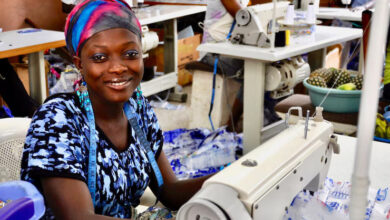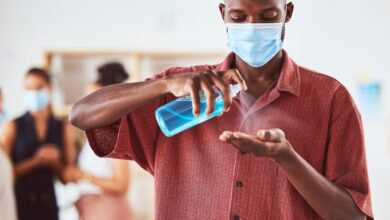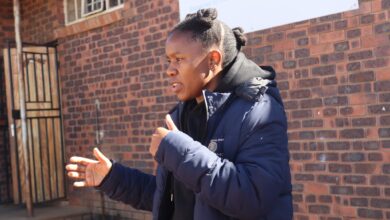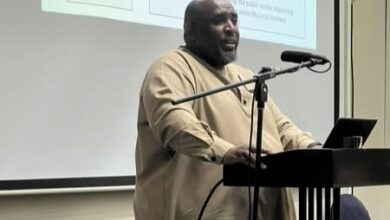Coronavirus – Botswana: Learning from Botswana’s COVID-19 vaccine rollout

Africa’s largest-ever vaccination drive is well underway.52 African countries are rolling out COVID-19 vaccines and over 73 million doses have been administered on the continent.
With WHO support, Botswana is one of four African countries that have completed an intra action review of their early COVID-19 vaccine rollout to help shape the next phase.
“The aim was to spot challenges and best practices so we can keep customising our rollout. It helped us take quick corrective measures and improve our services,” says Dr Malebogo Kebabonye, Director of Health Services at Botswana’s Ministry of Health and Wellness.
Rigorous planning
Botswana’s National Vaccine Deployment Plan was ready a month before the first vaccines arrived in late March. The country conducted surveys to gauge public perceptions around vaccinations and set up a national ‘ArmReady’ information campaign to prepare the public.
“Our national deployment plan was sanctioned at the level of the Cabinet Office. The surveys showed 76% acceptance of the vaccination among the public. Through the ‘ArmReady’ campaign, we also sought to pre-empt small pockets of resistance,” says Dr Kebabonye.
“Our first phase, aiming to reach 264 000, is about protecting the health system. The second is to ensure continued economic activity. The final phase will target 18-29 year olds.”
Botswana had received 473 000 doses of the AstraZeneca-Covishield, Pfizer and Sinovac vaccines by early July and by then had given first doses to 150 000 people, around one tenth of the country’s adult population. This included 70% of all health workers and 60% of people aged over 55.
“Multi sectoral involvement and coordination from the Presidential Task Force and the Ministry of Health were key. We appointed liaison offices at the national and sub-national levels and used community centres as vaccination sites. This helped communities to take ownership,” Dr Kebabonye explains.
“We piloted our rollout at a number of sites first, and then grew them out based on the capacity we had. Given the supply issues, this snowballing approach has been very handy.”
Covering all bases
Crucially, Botswana planned for a range of scenarios and challenges before the rollout began, including uncertainty around the supply of vaccines.
“We’re really urging African countries to plan for multiple scenarios, just like Botswana did,” says Chanda Chikwanda, who leads WHO Africa’s Vaccines Learning Agenda, which helps share lessons between African countries to strengthen the rollout of vaccines.
“We need to be flexible, depending on how the vaccine responses are going and on whether vaccines arrive on time. There are so many possible scenarios, so flexibility is imperative.”
Good financing, including resource mobilization, as well as constant monitoring and evaluation tools based on good data collection all strengthened Botswana’s early rollout.
“Countries that put an emphasis on resource mobilization have shown themselves to be best placed to do well. Eswatini secured enough funds to vaccinate its entire population and Rwanda, Angola and Ghana all invested in cold chain capacities early,” says Chikwanda.
“We must also get to the hard-to-reach groups, including mobile populations and people living in faraway areas. Lesotho used the flying doctors to reach remote communities.”
Challenges
According to Dr Kebabonye, the squeeze on supplies of vaccines has also served to push up public distrust in Botswana’s vaccine rollout.
A level of vaccine hesitancy was also found among some younger health workers, which was compounded by the spread of misinformation on and offline.
Like many countries, Botswana has faced challenges in ensuring enough vaccinators, nurses and health professionals and support staff are on hand.
Equipment shortages and low internet bandwidth in some areas has hampered the use of the electronic data systems that track the administration of vaccines and adverse effects.
“We’ve expanded the knowledge we share with our healthcare workers and communities around [any potential] adverse effects, including on assessing and managing side effects,” says Dr Kebabonye.
Nine more African countries recently expressed interest in conducting similar reviews.
“We’re learning as we go to some extent with this new virus and unprecedented vaccination drive,” said Dr Phionah Atuhebwe, New Vaccines Introduction Officer with the World Health Organization’s (WHO) Africa Regional Office.
“It is crucial that we keep a close, sharp eye on progress and that we share lessons between countries. This way we all improve our COVID-19 vaccine rollout together.”
Join 'Lesotho News' WhatsApp Channel
Get breaking Lesotho news — delivered directly to your WhatsApp.
CLICK HERE TO JOIN



